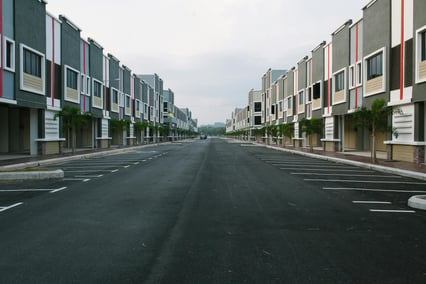Rights of access to lots
Many bodies corporate are mistaken about their rights to access lots. There is a right to access a lot only for specific purposes and in accordance with the Act.
If you want to read an appeal decision about whether a body corporate acted reasonably in accessing a lot, then read on – and before you think this is just a body corporate issue there is a bit in this one for management rights operators about working with heights and the related work health and safety issues….
This dispute was all about accessing a garden area on the top of a wall that was common property adjacent to the owner’s exclusive-use area.
What the BCCM Act says
Let’s start with section 163 of the Body Corporate and Community Management Act 1997:
‘(1) A person (an ‘authorised person’) authorised by the body corporate for a community titles scheme may enter a lot included in the scheme, or common property the subject of an exclusive-use by-law, and remain on the lot or common property while it is reasonably necessary:
(a) to inspect the lot or common property and find out whether work the body corporate is authorised or required to carry out is necessary; or
(b) to carry out work the body corporate is authorised or required to carry out.
(2) The power of entry may be exercised—
(a) in an emergency—at any time, with or without notice of intended entry given to any person; and
(b) in other cases, subject to subsection (4) —
(i) for entry to the lot mentioned in subsection (1) — at a reasonable time after at least 7 days written notice of the intended entry has been given to —
(A) the owner of the lot; or
(B) if the owner is not in occupation of the lot — the occupier of the lot; and
(ii) for entry to the common property mentioned in subsection (1) — at a reasonable time after at least 7 days written notice of the intended entry has been given to —
(A) the owner of the lot to which the exclusive use-by-law attaches; or
(B) if the owner of the lot mentioned in sub-subparagraph (A) is not in occupation of the common property – the occupier of the common property; and
(iii) in compliance with the security or other arrangements or requirements ordinarily applying for persons entering the lot or the common property.’
So a body corporate’s right to access a lot is only to inspect the lot or common property to see whether there is work the body corporate needs to do, and then to do that work, and in both cases only after at least 7 days’ notice has been given to the owner/occupier.
We will leave what an emergency is aside for the moment, but the big thing is that a body corporate cannot just use the master key to enter as and when it pleases.
Can a by-law create a right of access?
This is one of the five most common invalid by-laws we see. There is literally no point having a by-law that says anything about access because access rights are set out in the Act.
If your by-laws include that by-law (and most do), click here to send them to us to give you an obligation-free proposal to get them right for you.
The dispute over access
The owner had previously allowed access through his lot to the area but seemingly got sick of that.
He suggested to the body corporate that access could be obtained via a ladder to the wall of the building, which meant that the person doing the gardening was exposed to a fall height of somewhere between 1.6m at its lowest and 6.5 metres at its highest. The gardening was performed by the resident manager, presumably as a duty under their caretaking agreement.
As an aside, we wrote about fall heights in management rights here.
The intervention of the Work Health and Safety Regulator
We copped lots of stick for having the temerity to suggest that a body corporate was a PCBU (a Person Conducting a Business or Undertaking) in this article, but we like being proved right.
The owner wrote to the body corporate suggesting that the resident manager was being exposed to WHS risks in performing that gardening functions in that manner. Nine months later the WHS regulator rolled in and advised the body corporate:
‘The person conducting the business or undertaking (PCBU) has failed to manage, under Part 3.1 the risks to health and safety associated with a fall by a person from one level to another that is reasonably likely to cause injury to a person. During a site visit to this location, I observed that this specific garden has a garden bed that is 1240 to 1450mm wide. The outside wall of the garden bed has an approximate drop off of 3.5 to 6.5 m.
During discussions with the building manager, he advised that he is required to conduct maintenance activities on this garden. He also advised that this sometimes necessitates him to work in the garden where he is exposed to the edge. There is no control to prevent a fall.’
This would not have happened unless the body corporate was a PCBU.
What the body corporate did next
The body corporate constructed a safety fence on the garden edge and then decided to continue to access the area through the lot, which must have caused the owner to make the original application.
The adjudicator held that:
‘The primary objection by the [owner] is inconvenience experienced when gardening staff wish to access the gardens and this is a relevant consideration. However, the question is whether this is simply a matter of what specific arrangements are made for how and when the works are undertaken, to minimise any inconvenience. Provided adequate notice is given, the body corporate has a statutory right of entry and I am inclined to the view that the [owner] is overstating the inconvenience to him.’
So the owner lost in the Commissioner’s Office.
The owner then appealed to the QCAT on the basis that the adjudicator was wrong with respect to that conclusion because it was not reasonable for the body corporate to act in that way.
He was proved right. The QCAT said that
‘Reasonableness should not be assessed in a vacuum, but in the context of the nature and impact of the conduct involved. In the present case, the conduct involved entering a person’s home without their consent. Whether or not that entry is reasonable needs to be assessed in the context of the law’s strong protection of the inviolability of a person’s home.
… the ‘policy of the law is to protect the possession of property and the privacy and security of its occupier’, and … [there is] a long line of authority in support of that proposition, including note of ‘the great regard the law has to every man’s safety and quiet’ and that ‘every man’s house is called his castle.’
This one could have been said to be about the vibe!
The QCAT finished with:
‘In our view, on an objective assessment, entering the unit … for the purpose of attending to the adjoining garden beds is not reasonable, given that the ultimate purpose is merely aesthetic and the garden beds are not accessible to other residents. Also, it is evident that other alternatives are available, not involving external access via a ladder, which the body corporate considers to be risky.’
It then made an order which said there was no access for maintenance purposes, but that did not apply to access for the purposes of changing the nature of the area so that access was no longer needed for maintenance.
So, another dispute is decided by a subjective opinion about whether the body corporate acted reasonably. There are no hard and fast rules that can be stated with these cases, other than each dispute turns on its facts.
Other things you may be interested in
Uploading your CMS to us for a free by-law review quote
The five most common invalid by-laws
The Commissioner’s Office decision
Our working at heights article for management rights





